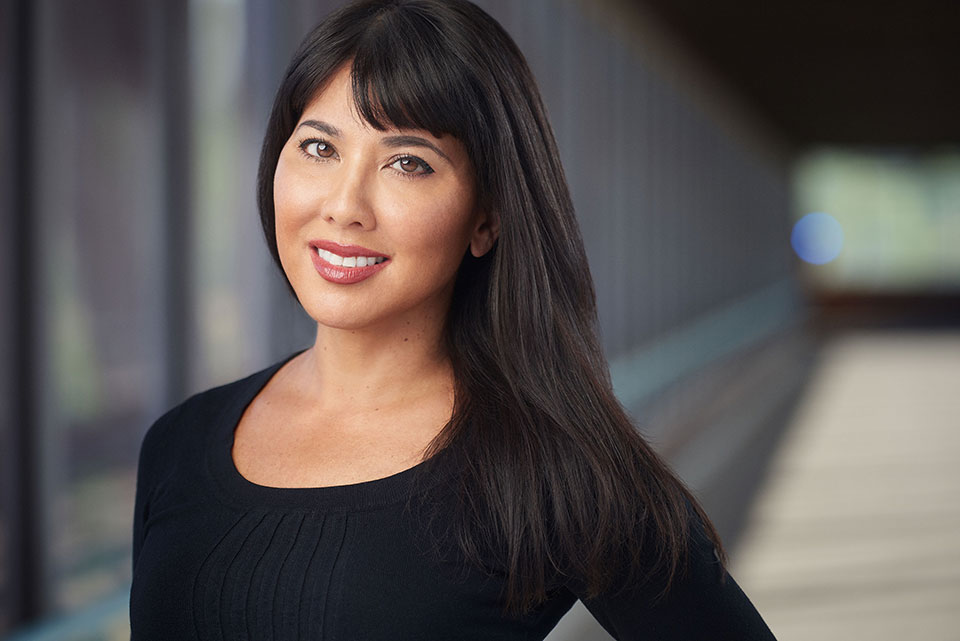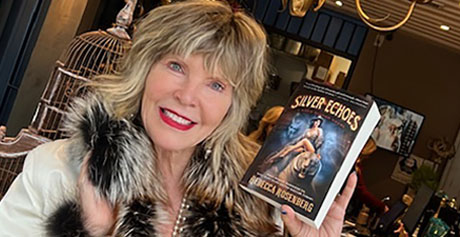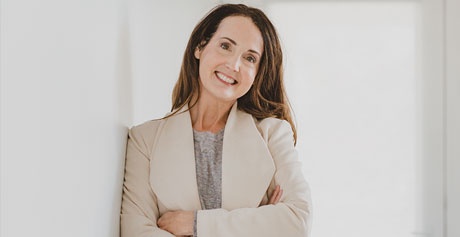An Exclusive Interview with Author & Professor of Law, Aya Gruber

She teaches first year criminal law, upper-division criminal procedure and various courses involving the interplay of criminal law, feminist legal theory, and critical race theory at the Colorado Law School – University of Colorado Boulder.
Professor Gruber was elected to membership in the American Law Institute in 2016 and has been an adviser to ALI Model Penal Code sexual assault project since 2012. As a member of the University of Colorado's Boulder Faculty Assembly and a chair on the University's grievance committee, she has investigated high-profile campus sexual assault and harassment controversies. A frequent public speaker on criminal justice, Professor Gruber has appeared on PBS, Fox News, ABC, and is quoted in various news outlets, including the New Yorker, Slate, and the New York Times.
Q: Why did you decide to attend law school?
AG: Law school was a natural choice for me. From as far back as I can remember, I worried about the government’s power to detain people. I remember thinking about it when I was ten. I would wonder, “What if I was mistaken for someone who committed a crime, who would help me stay out of jail?” I think the nagging fear came from the fact that my mother and her family, Japanese-Americans, were stripped of their property and forced into a detention camp during World War II simply because of their race and ethnicity.
When I was 15 years old, I started interning at the Miami Dade-County public defender’s office. I was also very involved in Lincoln-Douglas debate, which involved questions of philosophy and public policy, and I ended up being the third ranked debater in the country.
In college, I studied metaphysical and moral philosophy, completing an honors thesis on Immanuel Kant. I flirted with the idea of doing a graduate degree in philosophy. But, in the end of the day, I was drawn back to law because it is such a human endeavor. In philosophy, you ruminate about the morality of people and their lives; In law, you can make a positive difference in actual people’s actual lives.
Q: When did you realize you would rather teach instead of practice at a law firm?
AG: I remember clearly how I decided to teach rather than practice. It was about four years after graduating from law school, and I was a public defender in Washington, DC, mostly working on low-level felony cases. A series of events led me to believe that I would make a bigger difference in the world teaching and writing versus representing individual clients against the overbearing power of the penal state. Here, I’ll talk about one. I had a case involving a nineteen-year-old– let’s call him Ron – charged with stealing a video camera. The landlord (slumlord) of Ron’s mom’s building had taken to videoing them to catch them in something so he could break their lease and evict them. When the camera went missing, the landlord called the police and blamed Ron. Ron was an African-American teen from the toughest, most overpoliced neighborhood in D.C., yet he had made it to nineteen without a record. So, I treated that case as if it were a life offense and tried it to an acquittal.
Several months later, I get a call from Ron from lock-up in Maryland. He had been out with a bunch of guys in a car, and apparently some had committed robberies. Ron was charged with various counts as an accomplice. Because he was in Maryland, I couldn’t represent him. This and other cases made me feel hopeless to help change what seemed like a predetermined fate for young men like Ron. The cradle-to-prison pipeline seemed so inevitable and impossible to challenge through individual cases. I believed, perhaps naively, that through my teaching and scholarship I could more successfully challenge the various social and cultural structures that dictated so the carceral fate of so many men of color like Ron.
Q: What did you do prior to joining the faculty at the University of Colorado in 2010?
AG: Before joining CU Law, I was a law professor at University of Iowa College of Law and a member of the founding faculty at Florida International University College of Law. When I got to CU Law, I was in my 8th year of teaching. Before teaching, I practiced as a federal public defender in Miami, Florida and a public defender in Washington, DC. I also clerked for a federal judge.
Q: How many years does it take to become a Professor? Can you share the process you went through?
AG: When I became a law professor, things were simpler. If you had an “elite” degree (I went to Harvard so that got me into the club), some prestigious recommenders, and good interviewing skills, you could land a job in the professoriate. In the last decade or so, and especially after the economic downturn of 2008, law professor became a very sought-after career. Elite law schools developed fellowships and Ph.D. programs to ready their graduates to go on the market to land a teaching gig. Today, most of the people getting new law professor jobs have graduate degrees, completed prestigious federal clerkships and fellowships, and have published several law review articles in the top journals. But – and I think this is unfortunate – many have not actually practiced law. Frankly, I do not think the thirty-year-old me would have landed a law professor job in today’s market.
Q: Which courses of law do you teach?
AG: I teach first-year Criminal Law, upper-division Criminal Procedure, and various courses involving the interplay of criminal law, feminist legal theory, and critical race theory.
Q: What do you enjoy most about your career as a Law Professor?
AG: There is this moment when a student comes to you and says, “You made a difference in the way I think about the world.” It doesn’t happen all the time, but when it does, it’s magical. It doesn’t really matter to me whether the change in thinking puts the student closer to my political or philosophical beliefs. My job, as I see it, is to help students think critically about the law and the people it affects. If I have done that, I am happy.
Q: Your also an Author, tell us about the books you’ve written.
AG: I just released The Feminist War on Crime: The Unexpected Role of Women’s Liberation in Mass Incarceration. The book is the culmination of many years of studying the relationship between American feminism and our current state of mass incarceration. The book addresses the curious phenomenon that feminists condemn hyper-incarceration in the United States, yet they continue to assert that criminal law to fight violence against women is not tough enough. This punitive impulse, I argue, has been dangerous and counterproductive. In the quest to secure women’s protection from domestic violence and rape, American feminists became soldiers in the war on crime by emphasizing white female victimhood, expanding the power of police and prosecutors, touting the problem-solving power of incarceration, and diverting resources toward law enforcement and away from marginalized communities.
The book documents how, throughout time, the law-and-order, zero-tolerance agenda has often been unsuccessful at remedying rape and domestic violence and has even made women less safe and more fragile. For example, domestic violence mandatory arrests, no-drop prosecutions, forced separation, and incarceration embroil poor women of color in a criminal justice system that is historically hostile to them. In order to reverse this troubling course, I contend, feminists should abandon the conventional tools of criminal law and fight violence against women without reinforcing the American prison state.
Q: Can you tell our audience one of your most memorable moments in your career?
AG: There are so many, but here’s another case that moved me to think that the entire criminal system needs to be overhauled. When I was a federal defender in Miami, I had a 76-year-old client– let’s call him Juan – charged with serious felonies for transporting heroin into the United States from Colombia. Juan owned a farm in Colombia, and one day members of the FARC, which at that time had many narco-terrorist branches, went to his property, beat him up, and threatened his family if he didn’t transport drugs into the U.S. These were no idle threats to Juan, as his brother had recently been kidnapped by FARC, and the family remained unsure of his status. So, this elderly man, suffering from cancer (I recall it was bladder), risked his life by swallowing several balloons of heroin and flying to the U.S.
The U.S. Attorney believed Juan’s story, and I had evidence of the brother’s kidnapping. However, the federal sentencing guidelines at that time contained a built-in penalty for going to trial. Juan was afraid that if we went to trial and the jury didn’t believe him or, worse, didn’t care, he would be looking at ten years instead of the four he would face with a plea. So, I negotiated. The U.S. Attorney agreed that Juan’s age and health warranted departure from the sentencing guidelines. Indeed, doctors said Juan did not even have four years to live. We came to an agreement that Juan would plead guilty and receive time-served and probation.
The day of the sentencing came. Juan hobbled into court in his orange jumpsuit with a walker. The prosecutor and I informed the judge of our joint recommendation. The judge read the presentence report prepared by a non-lawyer probation officer. I knew this particular probation officer, as he fancied himself a tough-guy cop-type and often flirted with (some might say harassed) me at lock-up. The judge said, “Well, Ms. Gruber and prosecutor, you all say that Juan merits a departure because of his age and health, but probation disagrees. They don’t think he’s old or sick enough. I am inclined to follow probation’s recommendation.” Both the prosecutor and I objected to this, and finally I said, “Judge, this is your job. You are the lawyer, not the probation officer. You decide whether this elderly cancer-stricken man deserves a death sentence.” The judge responded dismissively, “I follow probation.” With that, he imposed four years, and a defeated Juan hobbled out of the room.
In the hallway, the probation officer came up to me and said, “Hey little lady, c’mon I know you’re upset about this, but really I had no choice. I had to follow the law.” I peered at him through narrowed eyes and replied, “Today, you condemn an innocent old man to die in prison. I hope you can live with yourself.”
Q: Which woman inspires you and why?
AG: I am inspired by Alexandra Ocasio-Cortez. I’ll never forget the look on her face when she won her upset victory in New York. The surprise, wonder, amazement, and hope for the future was what I see in the faces of my students. So many are not yet worn down by cynicism, self-interest, and politics-as-usual. They believe in making a difference. They believe in justice. And they believe in the law’s potential to do both.
Q: What are some of the challenges you feel women face today?
AG: Women face enormous challenges at this time of national crisis. For women living in economic precarity, especially single mothers, the coronavirus has been just devastating. Not only have many of these women lost their jobs or have been forced to risk their lives as frontline workers, many have also lost the childcare and services that public school provides. The government needs to act faster to relieve the burdens that our unequal society and an insidious virus has imposed on them. Black and Latinx women are disproportionately suffering because entrenched inequality and healthcare disparities have caused much higher infection and death rates among communities of color.
The coronavirus has also revealed more general inequalities between men and women of all socioeconomic statuses. Women are bearing a disparate load of the domestic and childcare labor that comes with social distancing. This is affecting their relative status in the professional world. For example, in academia, journals have noted a precipitous downturn in scholarship authored by women, although there is no such drop in male productivity.
Politically, women still face an uphill battle to achieve positions of leadership. Studies consistently confirm people still regard ambition or power-seeking as a positive trait for men and a negative trait for women. The wage gap persists. Women face losing control over their reproductive health and choices. I could go on . . .
Five Things About Aya Gruber
1. If you could talk to one famous person past or present, who would it be and why?
Ida B. Wells because as much as she was a racial justice crusader, she was also a feminist. She’s an inspiration to women everywhere.
2. What’s the best advice you’ve ever received?
When you want something (promotion, job, etc.), don’t try to be anyone but yourself. If you change who you are to get a job, you will have to spend your life pretending.
3. Favorite dessert?
I don’t love sweet food, so I suppose I’d go with the French approach and get the cheese course.
4. What app can’t you live without?
Google maps
5. What do you like to do when you have a day off?
I’d like to say be in the ocean, but I haven’t been in so long . . .


